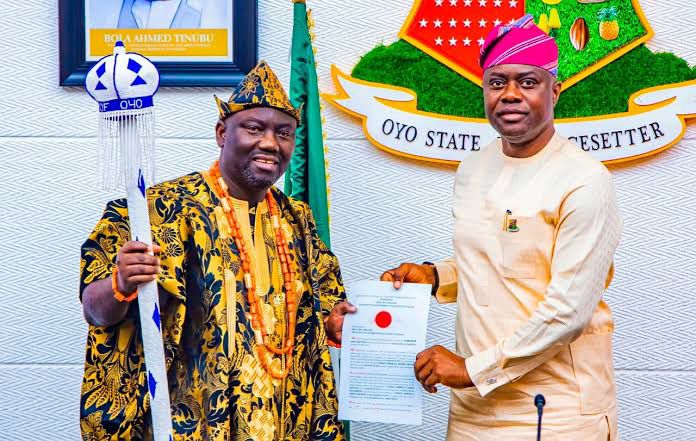
Governor Seyi Makinde of Oyo State has affirmed that the coronation of Akeem Owoade as the 45th Alaafin of Oyo will proceed as scheduled on April 5, despite ongoing litigation challenging his selection.
Speaking through his Special Adviser on Media, Sulaimon Olanrewaju, on Thursday, Makinde emphasized that no court ruling has barred the state government from proceeding with the coronation.
“Is there any ruling that stops the government from going ahead with the coronation? Is there any? We are going ahead because there is no court judgment that is stopping us from going ahead,” the governor stated.
This declaration comes amid lawsuits filed by two contenders for the throne, Lukman Gbadegesin and Ismaila Owoade, who are contesting Makinde’s approval of Akeem Owoade as the new Alaafin. The governor had formally presented Owoade with the certificate and staff of office on January 13 at the Governor’s Office in Ibadan.
One of the lawsuits was initiated by Prince Lukman Gbadegesin, who argues that Owoade’s appointment violates the Chiefs Law of Oyo State, 2000, and the Registered Alaafin Chieftaincy Declaration of 1961. Filed on February 12, Gbadegesin’s suit seeks to nullify Owoade’s appointment and prevent him from assuming the throne or performing any royal duties.
Similarly, Prince Ismaila Owoade, another aspirant to the Alaafin throne, has filed a separate lawsuit against Governor Makinde and 19 others. His suit challenges his exclusion from the selection process, which he claims was abruptly halted with the appointment of Prince Abimbola Owoade.
Despite these legal challenges, Governor Makinde remains resolute in his decision to proceed with the coronation. The governor’s stance underscores his confidence in the legitimacy of the selection process and his commitment to upholding the traditions of the Alaafin chieftaincy.
The April 5 coronation of Akeem Owoade as the 45th Alaafin of Oyo is expected to be a significant event, drawing attention from across the state and beyond. However, the ongoing legal disputes highlight the complexities and tensions surrounding the selection of traditional rulers in Nigeria.





